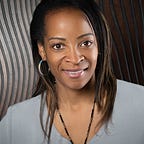The World Needs Your Leadership
Google’s recent firing of 48 employees for sexual misconduct is just the latest report in a year-long uprising against unacceptable and dysfunctional behaviour in the workplace. Behind the scenes many intelligent and well-intentioned people are working hard to find solutions. But one thing is increasingly clear, throwing more money or policies at the problem isn’t working.
As Peter Senge shared in the Fifth Discipline, the most obvious answer isn’t always the best. When we treat complex problems with quick-fix solutions, rather than addressing them at the source, we tend to create new problems elsewhere in our organizations or lives.
Getting to the heart of the matter
We are relational beings, who over time have become increasingly disconnected from ourselves and each other. Now more than ever, as we navigate the increasing complexities of our work and our world, the question becomes, “How do we relate to ourselves and each other in a way that unleashes our greatness, enriches our work and creates environments, cultures and communities where people thrive, not just survive?”
Author and social change agent, Adam Kahane, writes that “To co-create new social realities, we have to work with two distinct fundamental forces that are in tension: power and love.” He goes on to share a definition of power and love offered by Paul Tillich, a theologian and philosopher who has done extensive studies on the nature of these dynamic forces. Tillich defines power as the drive to realize our greater potential, and love as the drive to unite the separated.
When power and love are separated or out of balance they become degenerative. When they are integrated and working in harmony they are generative. Martin Luther King Jr. said it best, “Power without love is reckless and abusive, and love without power is sentimental and anemic.”
We have only to look at the persistent people and culture issues in our organizations today — from sexual misconduct to disengagement, high burnout and stress, low morale and performance and a lack of diversity and inclusion — to see that the dynamic forces of power and love are woefully out of balance.
The work of reintegrating power and love in our lives and work is critical to creating healthy and thriving organizations. But since we can’t point to power and love — only to the experiences they create and the results they produce — it can be challenging to know exactly where to start.
This is where your leadership comes in.
You are the leader you’ve been waiting for.
Imbalances of power and love, show up in the way we listen, speak, act and relate to ourselves and each other.
Many of us have it that we can’t fully be ourselves at work because of our role, our boss, our co-workers or the culture. I don’t discount that some people are facing dangerous or threatening dynamics at work. But for most of us, the fear is self-generated based on experiences of the past.
The moment we relate to our work from the stance that we can’t be at our best unless something or someone else in our environment changes, we become separated from ourselves and give our power away to circumstances. We are no longer in the driver’s seat of our lives.
We then perpetuate and reinforce this way of communicating and relating throughout our careers. We make many seemingly harmless choices in the moment to be self-preserved rather than fully-expressed in our communication, and at the effect of rather than at the source of in our relationships.
And out of those minute-by-minute micro-choices, multiplied across billions of interactions, between millions of people each day, we create the kinds of unworkable relationships, families, organizations, communities and societies that we have today.
What are you a stand for?
Answering the call to integrative leadership is an invitation to be responsible and accountable for what you are generating in the way that you listen, speak, act and relate to yourself and others. It’s an opportunity to reintegrate power and love in your life and work, and to choose in each moment how you show up and what you’ll co-create going forward.
When you’re invested in and called to lead from a place of full accountability and responsibility, you’re no longer on the sidelines waiting on power, permission or circumstances to line up and pave the way forward. You become a natural catalyst of change. Your quality of being, communicating and relating becomes the context for the way in which the work of the organization unfolds.
In whole, thriving organizations, we’re not dependent on policies, penalties or payouts to curb unwanted behavior. Each one of us is a demonstration of what we’re committed to, what we stand for and what is unworkable in every moment of our shared experience.
In order to restore wholeness and foster cultures that generate a deep sense of relatedness and connection among all people regardless of ability, race, gender, sexuality or otherwise, we need bold leaders and courageous change agents to step forward at all levels within the organization.
Up until now, we haven’t had a lot of support in this area. It’s understandable that our integrative leadership muscles are under-developed from lack of use. What we need are shared competencies and practices that challenge and champion us as we reintegrate power and love and redefine how we work with, lead and create together as whole human beings.
As we do, we will bring a new quality of wholeness and vitality to our lives and organizations and generate new levels of performance, profits and shared prosperity in the process.
